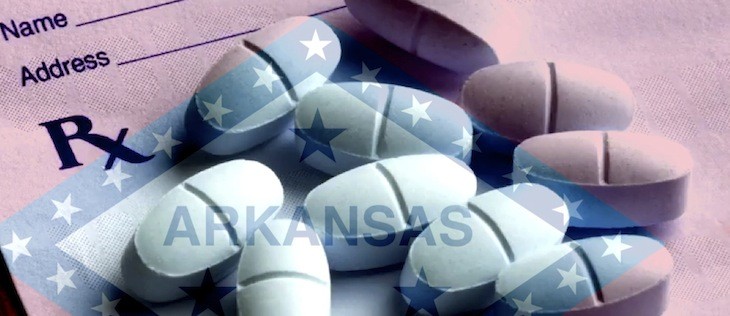State Rep. Shephard’s opioid overdose bill finds national advocate
by August 6, 2023 8:56 am 1,579 views

Freshman State Rep. Tara Shephard, D-Little Rock, led a bipartisan effort in her first legislative session to pass a bill to provide opioid overdose kits to all public high school and college campuses in Arkansas. That measure has found support at the national level from a Georgia Congressman.
Shephard, who appeared on this week’s Capitol View program, said Act 811 was a fulfillment of her campaign promise to protect children.
“I ran off a campaign that I would protect children. I am a former licensed alcohol and drug abuse counselor. We know, based on surveys given to our college students, that most drug use starts between the ages of 16 to 20 years old. And so, as part of my campaign promise, I wanted to ensure that our children were protected. This particular piece of legislation requires that there are overdose rescue kits on public high schools as well as state-supported colleges and universities,” she said.
U.S. Rep. Buddy Carter, a Republican from Georgia who has championed opioid abuse legislation for years at the federal level, connected with Shephard and expressed interest in mirroring it in Congress.
“I received contact from Congressman Carter’s office – he’s a Republican out of Georgia – and he mentioned that this was a phenomenal bill and that he wanted to mirror it for federal legislation. So I traveled to Washington maybe two weeks ago and I met with the Congressmen and we held a couple of interviews and discussed this legislation and that this was not a partisan issue. This is about saving lives. Roughly 300 Americans a day die from opioid overdoses. We want to work together to show that we can in fact do something to save lives,” Shephard said.
Carter is a pharmacist by training and has advocated for expanded access to naloxone, a life-saving drug that can be used to revive individuals during overdoses.
Kirk Lane, who heads the Arkansas Opioid Recovery Partnership and who served as a previous state drug czar, said Shephard’s legislation is extremely helpful in combatting the opioid crisis. His group supported the new law, which had bipartisan support and passed overwhelmingly.
“We were totally supportive. You know, we had worked in the wings of helping her [Shephard] with that legislation. And, based on my previous role, providing naloxone, which is the big part of that kit – it’s an opioid antagonist that allows somebody to breathe during an opioid overdose – to school nurses throughout the state,” he said.
“We stand supportive with funding and the state is in a good place to provide funding through some of the funding apparatus that they have. We will back them up on it where they can’t succeed,” he added.
A fiscal impact study attached to Act 811 shows there is no direct cost to the state, although local funding may come from state funds. Educational institutions will spend approximately $500 per wall mount and Narcan kit. Recurring costs are approximately $75-$125 every two years based on medication expiration dates.
Lane’s Opioid Recovery Partnership, a joint collaboration between the Arkansas Municipal League and Association of Arkansas Counties to spend the massive opioid settlement money – mostly settled during the term of former Attorney General Leslie Rutledge – has been operational since last November. Lane said it has received 148 proposals asking for more than $107.7 million.
Lane said $17.5 million in programs have been funded so far, with many of them supporting the cost of naloxone, but also supporting recovery beds in small communities as well as peer recovery specialists and overdose response teams. Another $10.2 million in applications are pending.
“By the end of next week, we’ll probably push out about 36,000 naloxone kits just in Arkansas,” he said. “We’re seeing a big difference. That’s over 70,000 units pushed into a population of three million… We’re starting to see some changes take place. People are saving people before first responders arrive and it’s saving lives. We’re starting to see our numbers start to go down.”
You can watch Shephard’s and Lane’s full interview in the video below.
